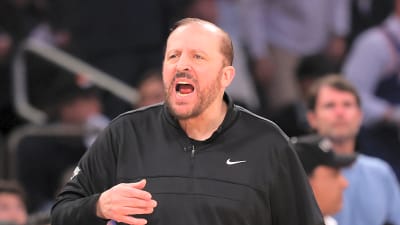
The House vs. NCAA settlement is still awaiting approval. That leave athletic directors around the country planning for everything.
That includes Georgia athletic director Josh Brooks, who has one of the top overall athletic departments in the country and plays in the SEC, the country’s top athletic conference.
He’s gearing up to share $20.5 million in the 2025-26 athletic year with his student-athletes — assuming U.S. District Judge Claudia Wilken approves the House settlement before July 1.
Brooks and his fellow athletic directors have gone over a number of scenarios in the last year, including how to share that money.
How Will Georgia Share Money with Student-Athletes?
While each school that opts into the settlement can share up to $20.5 million in the first year, those schools are not told how they can share it. Many schools have committed to sharing the majority of the money with football and men’s basketball. For some schools the share for those two sports has been estimated as high as 85%.
How will Georgia share all that money? Harris wasn’t prepared to provide a complete outline.
“You know, honestly, it varies by amount, but the opportunities are there for all 21 (sports), and it could be smaller amounts, but we've really focused on being broad-based and having opportunities,” he said to a group of reporters during the SEC meetings earlier this week. These comments were conveyed by Rivals UGA Sports.
Harris also said that Georgia is working with their student-athletes to help them leverage their social media to create more NIL opportunities.
The House settlement doesn’t limit student-athletes from engaging in NIL and many schools are bringing outside collectives in-house. But every NIL deal of more than $600 must be vetted and approved by the new NIL Go system being developed by Deloitte, which will be managed by the four power conferences.
The House v. NCAA settlement is a combination of three different cases brought by current and former student-athletes. It will allow for $2.75 billion in damages will be paid to thousands of college athletes over 10 years as part of restitution for their inability to access things like Name, Image and Likeness (NIL) opportunities.
The settlement also caps rosters and, in some cases, expands rosters, especially in the case of Olympic sports. Plus, it allows for schools to fully fund every scholarship offered, which wasn’t the case pre-House.
More must-reads:
- Penguins make decision on new HC
- Ex-NBA champion head coach immediately linked to Knicks
- The 'NBA active leaders in made field goals' quiz
Breaking News
Trending News
Customize Your Newsletter
 +
+
Get the latest news and rumors, customized to your favorite sports and teams. Emailed daily. Always free!








